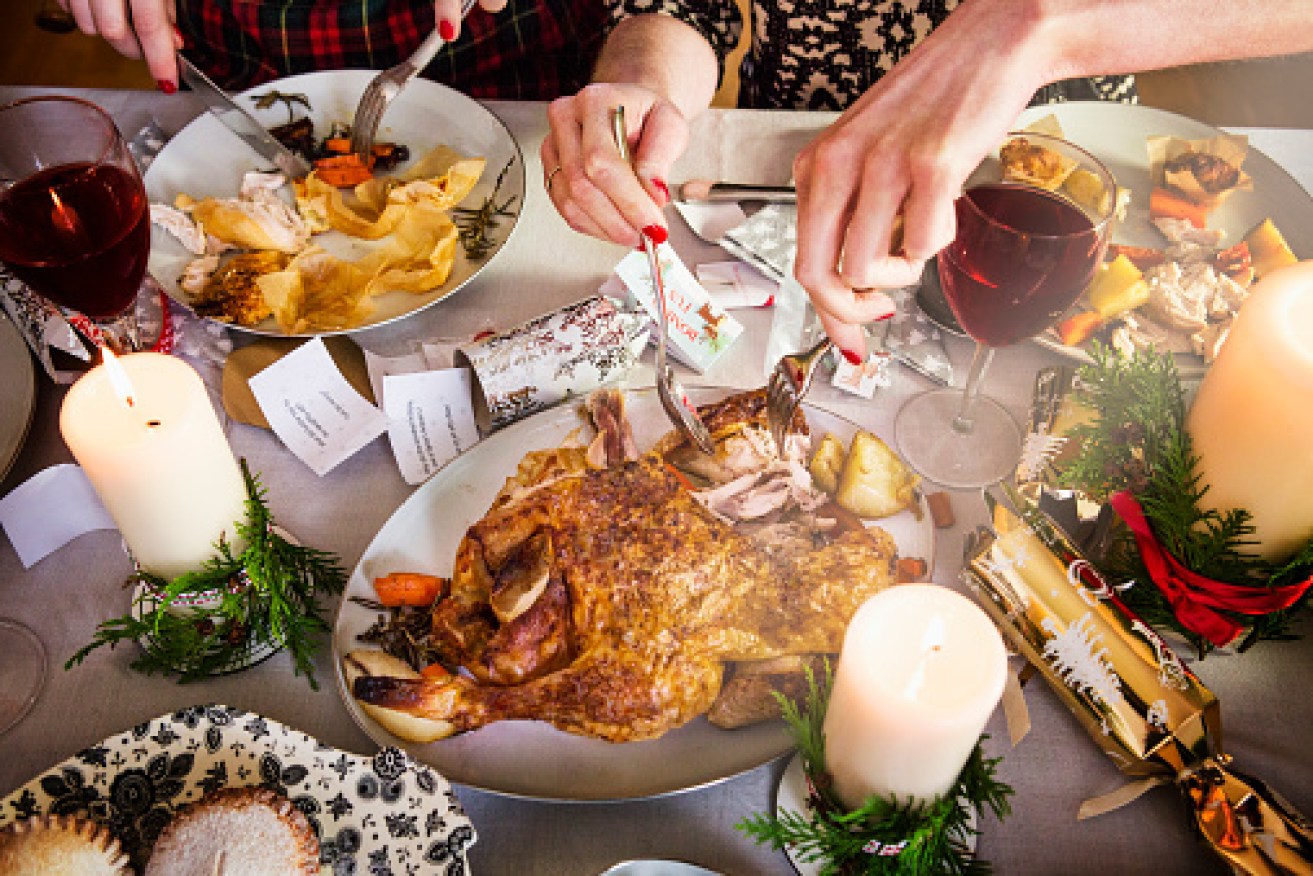‘Tis the season for food poisoning: a Christmas warning


Australians have been warned of potential food poisoning this Christmas. Photo: Getty
Australians have been advised to be careful with food hygiene in the lead up to Christmas after an unexplained rise in food poisoning.
One person has died and six others have been taken to hospital in Victoria during the past three weeks with cases of listeriosis, as the state’s Department of Health issued a word of caution for high-risk groups on Wednesday.
“Listeriosis is an illness usually caused by eating food contaminated by the bacterium Listeria monocytogenes. Listeria monocytogenes is widely distributed in the environment, and can grow in food at refrigeration temperatures,” Victorian acting chief health officer Dr Finn Romanes said.
“The Department of Health and Human Services has observed an increase in notifications of listeriosis … although these cases have not been linked to each other or to a particular food, health professionals should be aware of the risk of listeriosis over summer.”
Groups most at risk are pregnant women, newborns, older adults and people with weakened immune systems.
The surge in food poisoning prompted Victorian Health Minister Jill Hennessy to remind those at risk to avoid certain foods this Christmas.
“Pregnant women should remain vigilant and avoid eating salads prepared well in advance of consumption, cold seafood and cold deli meats, soft cheeses, soft-serve ice cream, dips and any unpasteurised dairy products,” Ms Hennessy told Ten Network.
“Food-borne illnesses typically increase during the summer months, when bacteria can multiply quickly. With a recent rise in listeriosis notifications it’s particularly important pregnant women take extra precautions this Christmas.”
The seven cases are among 25 reported in Victoria this year. In 2015, there were 22 cases.
How to avoid food poisoning this Christmas
With just one day until Christmas, the combination of hot weather and celebration feasts could be dangerous, experts warned.
“Especially in Australia and at Christmas time we are looking at heat being a factor and an increasing number of food poisoning (cases),” nutritionist Tracey Hyam Connor told The New Daily.
“A lot of food that we eat, if it’s left out in the heat for too long can actually form bacteria and can make us extremely sick.”

Hot weather and celebration feasts are a dangerous combination, experts say. Photo: Getty
Ms Hyam Connor says a lot of people don’t follow simple food preparation guidelines to avoid food poisoning.
“Food preparation is a very big thing – that involves everything from making sure hands are clean when preparing any sort of food, designating different chopping boards for different foods for meat, bread and vegetables, and to make sure the food that we are eating is kept at a good temperature for it to be stable without forming that bacteria,” she said.
“A lot of people don’t do this. It is crucial to take it into consideration and provide adequate safe food preparation.”
Ms Hyam Connor said the warning signs of food poisoning are hard to distinguish, until it’s too late.
“Unfortunately if you can see signs of food poisoning by looking at it it’s well passed the use-by date,” she said.
She said any meat left out needs to either be refrigerated immediately or thrown away, while wilted vegetables are a clear sign of potential risk.
“Disposal of foods, it seems like it’s not very important, but when dealing with fresh or cooked seafood it must be disposed of properly and quickly so no one eats it later on,” Ms Hyam Connor said.
The Department of Health has provided tips to avoid food poisoning this festive season:
- Wash your hands with soap and water before handling food
- Keep your utensils, cutting boards, dishes and containers clean and dry
- Store food at the correct temperatures. Cold food should be stored at less than 5 degrees Celsius
- Cook food thoroughly
- If in doubt throw it out
- Separate raw and cooked foods
- Use different utensils, cutting boards and containers for raw and ready-to-eat food
- Check your fridge and freezer temperatures
- Keep salads, spreads, dips and other perishable products in the fridge or a cooler until needed
- Rinse all fruit and vegetables in clean water








